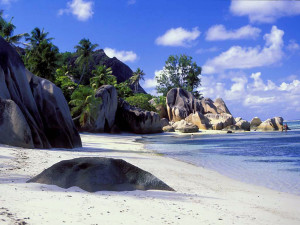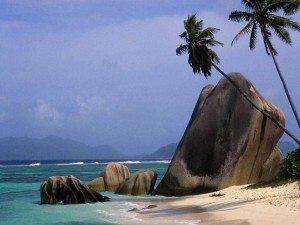Unique is an overused word. It has appeared in the pages of so many holiday brochures that it has lost any real meaning.
That is unless you are describing Seychelles. When applied to our glistening islands ‘unique’ magnificently and triumphantly reclaims its true meaning. Not just once but over and over again. The 115 pristine islands that sparkle in the middle of the Indian Ocean are one of the world’s greatest treasures. A place where natural purity and authenticity are
perfectly cocooned from the pernicious influences of commercialism. A place where tranquillity and simplicity can be found and innocence rediscovered. A place like no other and another world entirely.
Forgotten for centuries except by the most fearless sailors and pirates, the islands
were destined to stay uninhabited until the late 18th century when the French,
expanding their empire across the Indian Ocean, made them their home. They called
the islands Seychelles.

Over the following decades this unique place spawned many stories, legends
and claims, none more entrancing than that of the Garden of Eden. General Gordon,
who met his skewered fate at Khartoum, first opined that the island of Praslin and
its Vallée de Mai, a primeval forest where the magical coco de mer palm grows in
abundance, was the true location of the biblical paradise found at the core of
Christianity, Judaism and Islam.

He based his claim partly on the fact that the Seychelles were the most ancient
mid-ocean islands in the world, the highest peaks of the submerged remnants of
Gondwana. But his theory also stemmed from his belief that the coco de mer was
the Tree of Knowledge. Certainly, the distinctly feminine curves of the coco de mer’s
kernel would have planted the term ‘forbidden fruit’ in the mind of many a prude.
The Vallée de Mai, now a UNESCO World Heritage Site, has never lost its
mysterious romantic allure and is one of Praslin’s main attractions. The damp,
primeval atmosphere that lingers beneath the forest canopy represents the epitome
of untouched, natural beauty and maybe even a clue to the very origins of man.